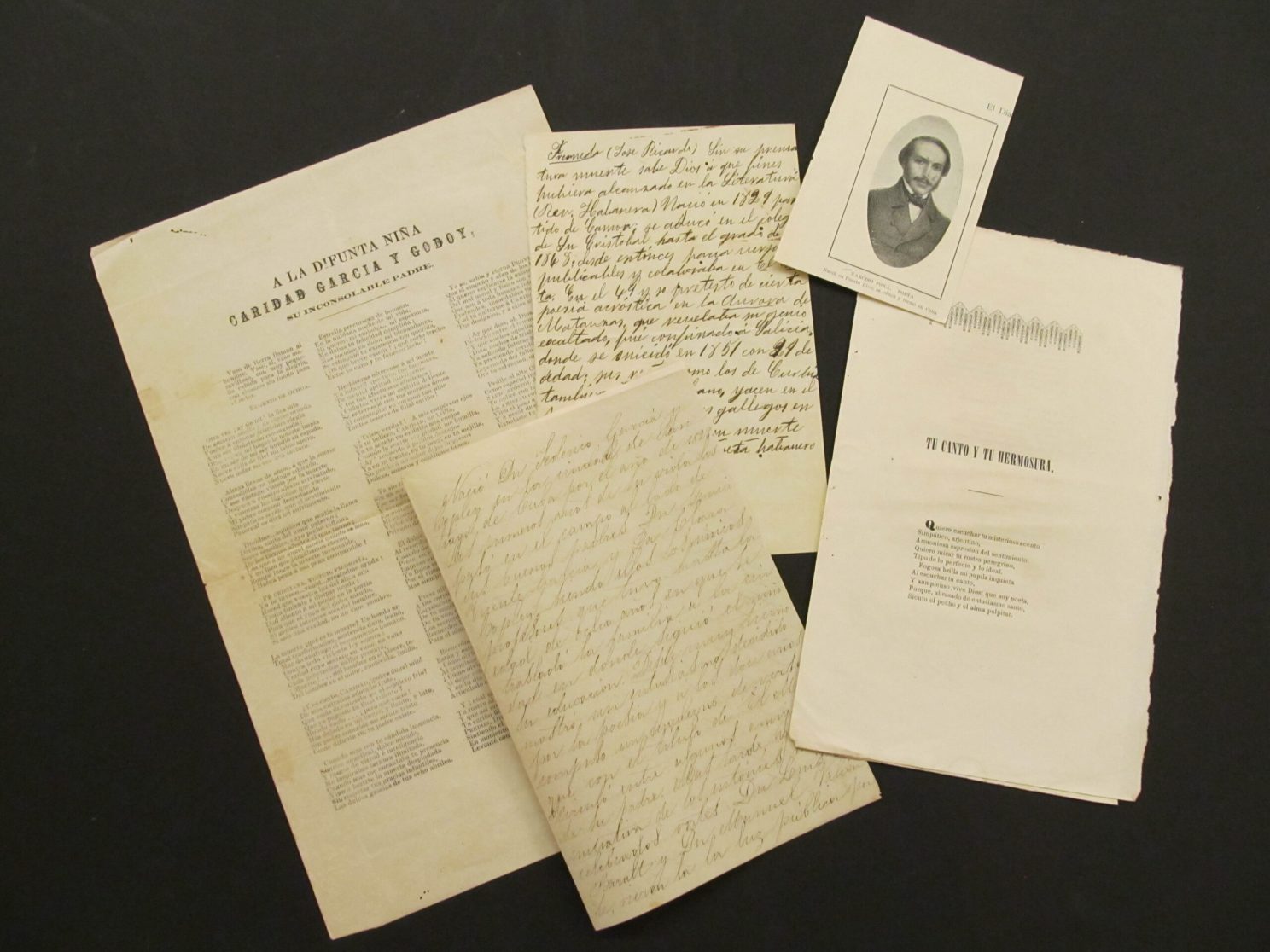The Cuba Studies Program of the David Rockefeller Center for Latin American Studies at Harvard University is pleased to announce that the Harvard Library has begun an important process of digitization of some of its most important Cuba-related resources. The digitization of the José Augusto Escoto Cuban History and Literature collection, ca. 1574–1920, is now underway. The Harvard Library houses the largest collection of unique Cuban monographs in the United States. Over the next two years, Harvard aims to digitize monographs produced in Cuba before 1923 and make them freely accessible.
The Escoto collection comprises autograph manuscripts, correspondence, historical documents, printed items, and other materials relating to Cuban history and culture. It includes 63 boxes of clippings, drawings, lithographs, portraits, sketches, individual issues of journals and newspapers, decrees, orders, obituaries, pamphlets, and leaflets, among others. Some of the subjects covered in the materials are censorship, religion, commerce and industry, conspiracy and independence, laws and legislation, military, piracy, political parties and elections, printing and publishing, public finance and taxation, schools and education, slavery and slave trade, statistics, and theater.
Eduardo Torres Cuevas, director of Cuba’s José Martí National Library, visited Harvard last spring. “The digitization of the Escoto collection is of crucial importance to the study of Cuban history and culture,” he said.
By digitizing this collection, Harvard University will contribute to the Cuba Libro Project, which involves the libraries of the University of Florida, Harvard University, UCLA, the University of Miami, Duke University, the University of North Carolina at Chapel Hill, Florida International University, and the New York Public Library in a collaborative effort with the Biblioteca Nacional José Martí to provide greater knowledge of, and access to, Cuban bibliographic history held in libraries in the U.S. and Cuba.
Additionally, Lynn Shirey, the librarian for Latin America, Spain & Portugal, is currently planning an additional digitization proposal that would increase accessibility to Cuba-related special collections (documents and archives) from several Harvard libraries, including the Museum of Comparative Zoology Library, Houghton Library, and the Harvard University Archives. Harvard libraries are the home to some of the most important Cuba collections outside of Cuba.
The University honors its commitment to expand academic cooperation and research interests between Cuba and Harvard by making its resources more widely accessible to academics in the US and Cuba. These efforts follow on the Memorandum of Understanding that Mark C. Elliott, vice provost of international affairs, signed with Aurora Fernández, vice minister of Higher Education of Cuba, on Dec. 16, 2017, to expand collaborative research and cooperation between Harvard and Cuban universities and research centers.






